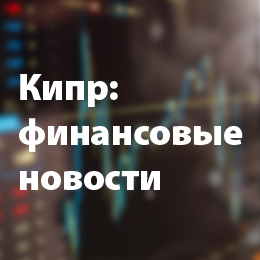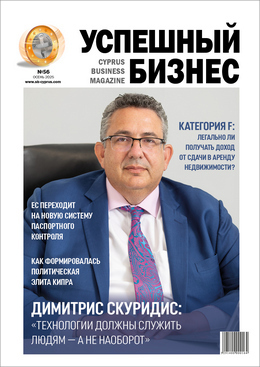Evgeniy Tyapkin, Executive Director of Freedom Finance Europe, discusses the development of the financial sector in Cyprus over the past 10 years and shares his thoughts on what to expect in 2024.
Where did it all start?
I’ve been in Cyprus since 2014, initially leading another brokerage firm, and joined Freedom Finance in 2017. At that time, we were essentially a start-up – just 8-10 people in an office set in a villa. We were learning to work in a completely new country and a new European jurisdiction, trying to meet all the local requirements. On one hand, we were focused on training and compliance. On the other hand, we always had a robust IT team, which, alongside operational activities, created and developed a trading platform, still in use today.
Did you initially plan to develop and maintain the platform yourselves?
Absolutely. We had the expertise for both. Now, we operate two companies. We attract and serve clients through Freedom Finance Europe. And there is Freedom Finance Technologies, which focuses on the development and support of our trading platform, used not just by our group’s companies but also by other professional market participants, including those in Cyprus.
Over these years, there have been both highs and lows. In the Cypriot economy and in the government’s relations with various types of business. How has the attitude of the Cypriot regulator towards your business changed?
It can be asserted that Cyprus is now one of the most regulated jurisdictions among European countries. In an effort to shed its offshore reputation, Cyprus has introduced very serious regulatory measures since 2014. However, as we grew gradually, we consistently integrated these measures into our operations without much stress.
If you were to describe the activity of Freedom Finance Europe in Europe in one sentence, how would it sound?
Freedom Finance Europe is a brokerage firm that provides direct access to international stock markets, where any client can quickly purchase real shares and other securities.
A significant advantage of your company is that you have reached a wide retail market. So, any person, regardless of the amount they have, be it 1,000 or 100,000 euro, can use your platform and trade shares?
You are absolutely right. There are minimal lots on the exchange, but they are usually insignificant, allowing us to execute client orders for almost any amount.
How did you come to this approach?
At the start, we had two main tasks. The first was to create a technological platform, and the second was to establish the corresponding infrastructure. Unlike many companies that do not route client orders to the stock market, we need to have relationships with clearing agents, depositories, exchanges, and prime brokers. For example, we have direct membership on the Athens Stock Exchange, and orders are executed through the Greek bank Piraeus, where clearing and delivery of securities also occur. All this must also comply with legislative requirements, which are constantly becoming stricter.
What is your abmition when it comes to the market share in Europe?
We are just beginning our active growth phase. Our marketing has gained sufficient strength, and our client base is expanding. However, our overal share across Europe is still modest. It is worth mentioning that our clients, which now amount to around 400,000, are serviced by a relatively small team: our platform is designed so intuitively that clients can easily understand everything on their own. Therefore, we won’t have issues with scaling.
Similarly, we won’t have problems complying with legislative norms and rules. We report to more than one regulator and more than once a year. Our primary regulator is the Cyprus Securities and Exchange Commission. We also report to the U.S. Securities and Exchange Commission, where reports are required quarterly.
Additionally, we work with auditors from the “Big Four”, who are also PCAOB-certified. These specialists are authorized to work with public companies.
Are you a public company?
Yes, for four years now. Shares of our holding are traded on the Nasdaq Exchange. It’s important to note that the reporting of a public company is much stricter than that of a private one.
However, your reputation was negatively impacted by a few publications from an American company…
Indeed, there are certain ill-intented practices when fake information is fabricated and delivered in the form of research. When published, the authors count on the market reaction and take short positions in the targeted company. After the research is published and the stock price drops, the position is closed, and money is made that way.
It’s quite common in the U.S. to play the stock market not for a rise, but for a fall. We have responded and dismantled all of the accusations publicly, making it clear that this was a fabricated attack. To be fair, we don’t see a significant impact of these publications on the value of our shares. There was some decline, but then the value returned to approximately the same level as before the publications.
What about the reputational hit?
As of now, we are not facing any difficulties. None of our partners have broken off relations with us. We have always conducted business openly with both counterparts and clients. This was our principle even before we became a public company, and we continue to strictly adhere to it. We inform, warn, explain… Even when we make a mistake, we always talk about it.
I can assume that because of this situation, some might have chosen not to partner with us, but all those who were with us earlier have stayed. Importantly, in our experience, the larger the participant and counterpart we cooperate with, the fewer questions they have.
How challenging is it to work here, in Cyprus, considering the situation with Cypriot banks?
Cypriot banks prefer to do nothing, to refuse everyone, to prohibit everything, just to avoid taking responsibility. But sooner or later, they will have to move out of this state, or they will remain on the sidelines of business. Staying in such a state for a long time is not sustainable as competition doesn’t stand still. Neobanks, which also operate within the law without violating any requirements or rules, are already posing serious competition to traditional banks, and this trend is only going to intensify.
Can you predict the main events of 2024 in various sectors? Let’s start with the regulator. What changes do you foresee here?
I believe the regulator has reached its optimal level in terms of performing its functions, and it will only improve the processes that already exist. For instance, the quality of reporting, which we are already seeing improve.
What about the securities market?
I don’t anticipate any significant changes in the near future. Over the past few years, all companies in this market have achieved an optimal level of compliance with current regulatory requirements. Sanctions do add some complexities, but they are not something that can seriously affect the market. Everyone has learned to operate in these circumstances.
In terms of market dynamics, it’s hard to expect significant growth under current conditions. However, the market never stands still; it’s always moving. This means there are opportunities for profit in trading.
And finally, what’s your forecast for the development of Cyprus? What direction will it take?
Cyprus is a unique place. It has always been fortunate. Just look at the island’s history. Initially, it was an offshore zone, providing the state with earning opportunities. Then, when Cyprus joined the EU, those opportunities disappeared, but new ones emerged, like the IP-Box tax regime. This brought in a lot of talent, a surge in intellectual property creation, and the opportunity to earn royalties. The real estate sector began to grow, along with investment opportunities and residency options... What did this lead to? An influx of investment and funds into the economy, the development of the construction sector and development companies, an increase in demand for labor, and much more. Most likely, this trend will continue in the future, meaning the economy will grow.
What is Cyprus lacking?
Undoubtedly, Cyprus needs digitalisation, e-government, and advanced fintech services. We’ve already started meetings to discuss how we can emulate experience that we’ve accumulated in Kazakhstan, where our holding is among country’s key financial institutions, advancing banking, insurance, brokerage, and e-com businesses in close collaboration with the state’s digital infrastructure. For instance, in Cyprus, it took me 2.5 months to process a mortgage, while in Kazakhstan, it’s done in an hour. Their databases are so well digitized that most official matters are resolved in just minutes.
I would like Cyprus to also become a developed digital country. Of course, this is a challenging and slow task. There isn’t a country in Europe where this issue is fully resolved yet. But that doesn’t mean we shouldn’t move in that direction. And we are ready to help. We have a large team with very serious, long-term experience. We were the first company in Kazakhstan to launch digital credits. Now we even have digital auto loans there. We are ready to share our expertise to create a high-level digital government in Cyprus.







